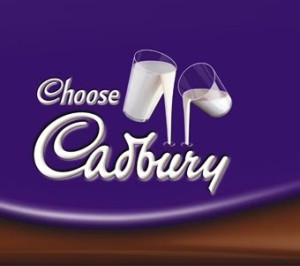A sad day in Bourneville…

While I will usually always push the benefits of the free market, this takeover irks me quite a bit and displays a number of problems in the investing community today. Cadbury is an English brand, a British legend and a 186-year giant that not only created the world’s best milk chocolate (I have 3 large bars sitting in my cupboard as I type this), but also a community, Bourneville, a few miles outside of England’s second city, Birmingham. Bourneville was built as a place for the people of Cadbury, a community and a home to the workers who provided tasty treats to their countrymen and women.
How long will it take for Kraft to seek “manufacturing efficiencies” and “economies of scale” before they close this legendary facility and the Cadbury World that sits with it.
Cadbury is bigger than just a cholocate company (or confectionary company as it is already being lumped into within the Kraft family). Cadbury is part of England. The shareholders of Cadbury resisted the Kraft takeover for six months but acquiesced today and gave away a piece of their country to an American corporation with very little fight. Kraft did not need Cadbury. Mars had overtaken Kraft as the largest confectionary company with its purchase of Wrigley. So Kraft saw a need to get bigger. Kraft’s brands are stale. There is love for the brand, but, really, how fast is the mac ‘n cheese market growing? This is where I have a huge problem with the investing community.
Let’s say Kraft was profitable, maybe mildly so, and remained that way. Investors, those of the large institutional variety, want to see growth. Selling the same amount of something and making money year after year (and let’s be honest, there’s no secret Kraft had not been achieving this lately, as they even had to sell their pizza business to raise the cash to make the purchase) does not get investors excited. Large growth does. And if you cannot do it organically, you do it through acquisition and tradition be forgotten. Kraft should have spent the time looking at itself and trying to figure out how it could fix itself, not bring more product, employees and processes on board to further stretch their resources. Investors need to see that size doesn’t always lead to the best results. Many of the problems the companies faced over the last two years as we fell into a recession was being too big, too out of control, too full of debt. Kraft had to take on more debt to make this deal go through. The banks were happy to take a chunk out of the transaction. Why? Because when Kraft faces a problem of getting too big and too debt ridden, guess who will jump in to try and solve it? That’s right, the banks, whose brethen from the other side of the building are the institutional investors who like to force the hand of corporate boards. Kraft should not be looking to Cadbury to try and solve their problems, they should be looking in the mirror. If they did not have the cash and wherewithal to make this deal with cash they had from a successul business, they should have thought twice about it. Cadbury should not be accepting offers for a business that is worth far, far more than a share price. Go into your local Sainsbury, Tesco, H&M or Marks and Sparks and ask a customer if they want an American company owning Cadbury. I ensure you, you will hear a resounding no. Cadbury’s board gave away a piece of England today, as Manchester United and Liverpool football clubs can tell you when they were taken over by debt-ridden Americans, it makes today a very sad day.
